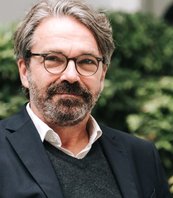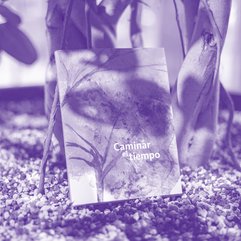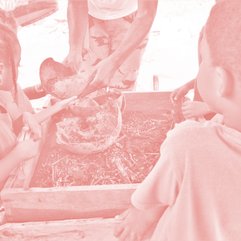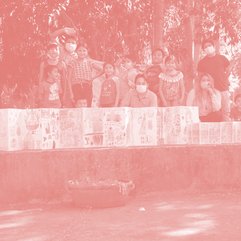Spore hosts: Staatsräson? Time to talk
A discussion on the impact of the German Staatsräson on society, the state and its policies.
19.00-21.00
Save the Date
for adults
in German

Germany's approach to Israel, Palestine and the war in Gaza is often explained and justified with the undefined “German Staatsräson”. Politicians, journalists and experts use the term to underpin their own ideas and interests - raison d'état has thus become a projection surface.
For Palestinians and Israelis living in Germany, as well as Muslims and Jews, however, the Staatsräson debate has serious implications. We want to understand how their lives, their relationships with each other and their relationship with the state are affected. And we want to talk about the role that Staatsräson plays in the German debate on anti-Semitism, racism and antimigrant sentiment.
What can minorities and critical voices in society do to create open and safe spaces for discourse and fill them with content? How can they defend themselves against unwanted appropriation and prevent being played off against each other as supposedly homogeneous groups? How can they contribute to recognizing and jointly combating the problem of increasing racism and right-wing extremism in Germany?
We want to take a first step on this evening - out of the impasse in which the Middle East debate in Germany has been stuck for months, and into a respectful and appreciative discussion that tolerates different opinions and perceptions while at the same time focusing on the rights of all.
Speakers:
Dr. Nahed Samour, Research Associate at Radboud University, Nijmegen has studied law and Islamic studies at the universities of Bonn, Birzeit/Ramallah, London (SOAS), Berlin (HU), Harvard and Damascus. She was a doctoral fellow at the Max Planck Institute for European Legal History in Frankfurt/Main. She clerked at the Court of Appeals in Berlin, and held a Post Doctoral position at the Eric Castrén Institute of International Law and Human Rights, Helsinki University, Finland and was Early Career Fellow at the Lichtenberg-Kolleg, Göttingen Institute for Advance Study. She has taught as Junior Faculty at Harvard Law School Institute for Global Law and Policy from 2014-2018. From 2019-2022, she was Core Emerging Investigator at the Integrative Research Institute Law & Society, Humboldt University Berlin.
Deborah Feldman is a German-American author who was born in New York in 1986 and grew up with her grandparents, Holocaust survivors from Hungary, in the Hasidic, strictly religious Satmar community in Williamsburg. Her mother tongue is Yiddish and she secretly studied literature and eventually broke away from the community; she later moved to Berlin with her son. Her autobiographical story ‘Unorthodox’ became an instant New York Times bestseller, sold millions of copies, was translated into 30 languages and won an Emmy for its international film adaptation.
Prof. Dr Uffa Jensen is a historian and has been Professor of Antisemitism Research and Deputy Director of the Centre for Antisemitism Research at TU Berlin since 2017. His research focuses on the history of anti-Semitism, German Jews, psychoanalysis, the history of emotions and historical image research. His most recent publications include: ‘An anti-Semitic double murder. Die vergessene Geschichte des Rechtsterrorismus in der Bundesrepublik’ and “Zornpolitik” (Berlin 2017).
Stephan Detjen is chief correspondent for Deutschlandradio. He has worked at Bayerischer Rundfunk and as a legal-political correspondent for Deutschlandfunk in Karlsruhe. He has been Deutschlandfunk's parliamentary correspondent in Berlin since 1999. Since 2012, he has been chief correspondent for the three Deutschlandradio programs, heading the broadcaster's capital city studio in Berlin and the Brussels studio. Stephan Detjen has published books and essays on legal and contemporary historical topics, most recently together with Max Steinbeis “Die Zauberlehrlinge. The dispute over refugee policy and the myth of breaking the law”.
Moderator:
Kristin Hellberg is a political scientist and journalist who pent seven years reporting from Damascus on the Middle East for German, Austrian and Swiss radio programmes as well as various print and online media. Today she works as an author, Middle East expert and presenter in Berlin. Herder Verlag has published her book ‘Verzerrte Sichtweisen - Syrer bei uns. Von Ängsten, Missverständnissen und einem veränderten Land’ (2016) and ’Der Syrien-Krieg. Solution to a world conflict’ (2018). As a Mercator Foundation scholarship holder, she analysed the Syrian diaspora in Germany.
 Deborah Feldman
Deborah Feldman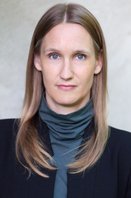 Kristin Helberg (Image by Jan Kulke)
Kristin Helberg (Image by Jan Kulke)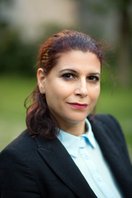 Nahed Samour
Nahed Samour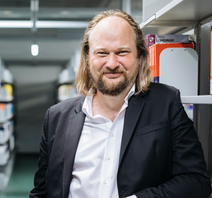 Uffa Jensen *image by TU-Presseabteilung
Uffa Jensen *image by TU-Presseabteilung